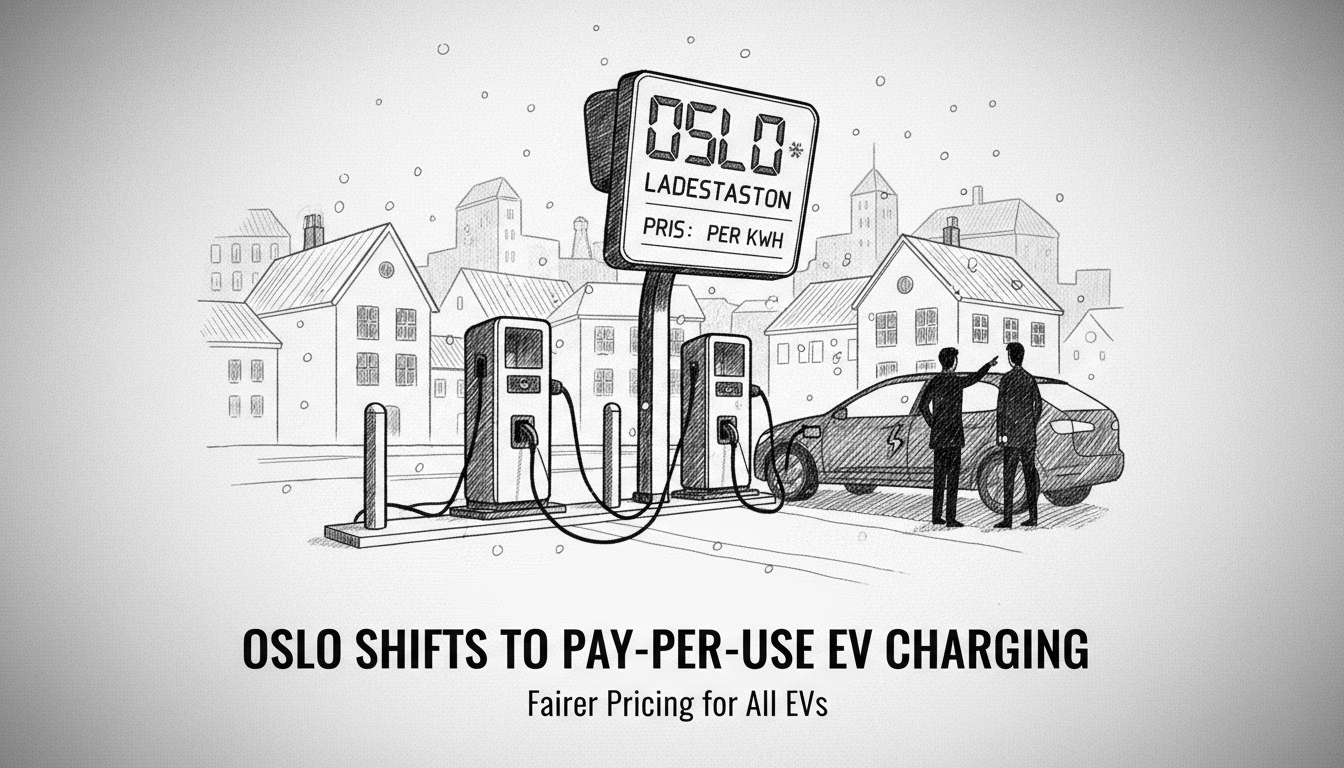Oslo is transforming how electric vehicle owners pay for public charging. The city council proposes moving from time-based fees to consumption-based pricing. This change affects approximately 2,500 municipal charging stations across the Norwegian capital.
Currently, drivers pay for the time their vehicle occupies a charging spot regardless of actual electricity used. The new system will charge drivers specifically for the kilowatt-hours they consume. City council leader Eirik Lae Solberg stated this creates a fairer arrangement, especially for owners of older electric vehicles that charge more slowly.
The transition will occur gradually over six months if approved by the city government. Older charging stations will maintain the current pricing model until they receive technical upgrades.
The Norwegian Electric Vehicle Association predicts most drivers will see lower charging costs under the new system. The organization's Oslo and Akershus branch leader confirmed they've advocated for this change for years. He noted the pricing adjustment is long overdue.
However, a significant concern remains unresolved. Residents who already pay for residential parking permits must still cover additional charging costs. This creates a double payment situation that critics argue discourages electric vehicle adoption in dense urban areas.
Oslo's charging policy revision reflects broader Nordic transportation trends. Norwegian cities lead Europe in electric vehicle adoption rates. The country's extensive public charging network has been crucial to this success. Yet pricing structures increasingly face scrutiny as electric vehicles become mainstream.
The consumption-based model aligns with Norway's environmental objectives. It encourages efficient charging behavior rather than station hogging. Drivers will have incentive to move their vehicles once charging completes, increasing station availability.
This policy shift comes as Oslo works toward ambitious climate goals. The city aims to reduce direct greenhouse gas emissions by 95 percent before 2030. Transportation electrification represents a key strategy in this effort. Fair charging pricing helps maintain public support for the electric transition.
International observers watch Oslo's electric vehicle policies closely. The city often serves as a testing ground for sustainable transportation innovations that later spread globally. This charging model adjustment could influence similar changes in other cities facing electric vehicle infrastructure challenges.
The gradual implementation approach acknowledges practical constraints. Retrofitting thousands of charging stations requires time and resources. The phased rollout allows for system testing and adjustment before full deployment.
Electric vehicle owners should prepare for the transition by understanding their vehicles' charging patterns. Those with newer models featuring faster charging capabilities stand to benefit most from the consumption-based system.

